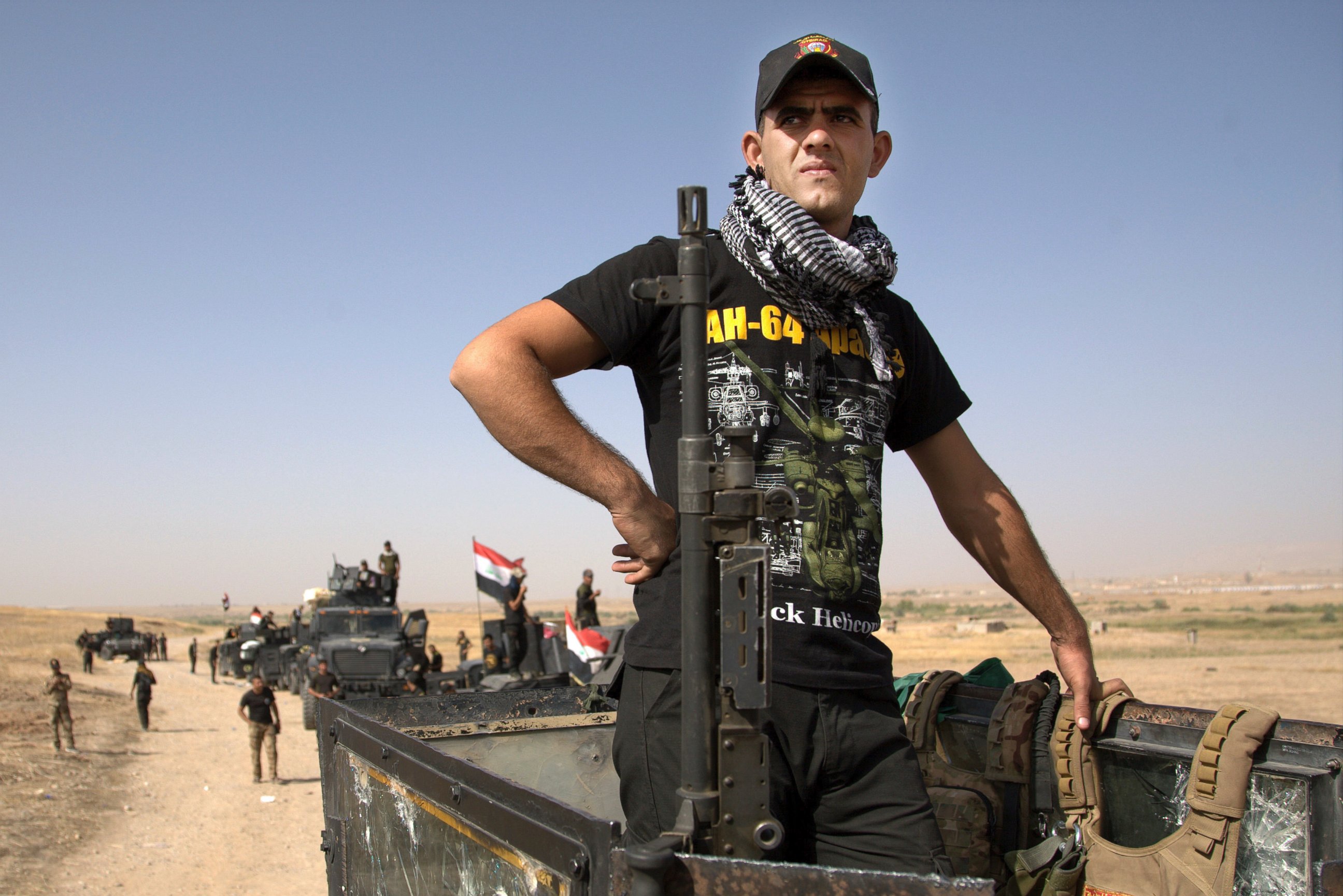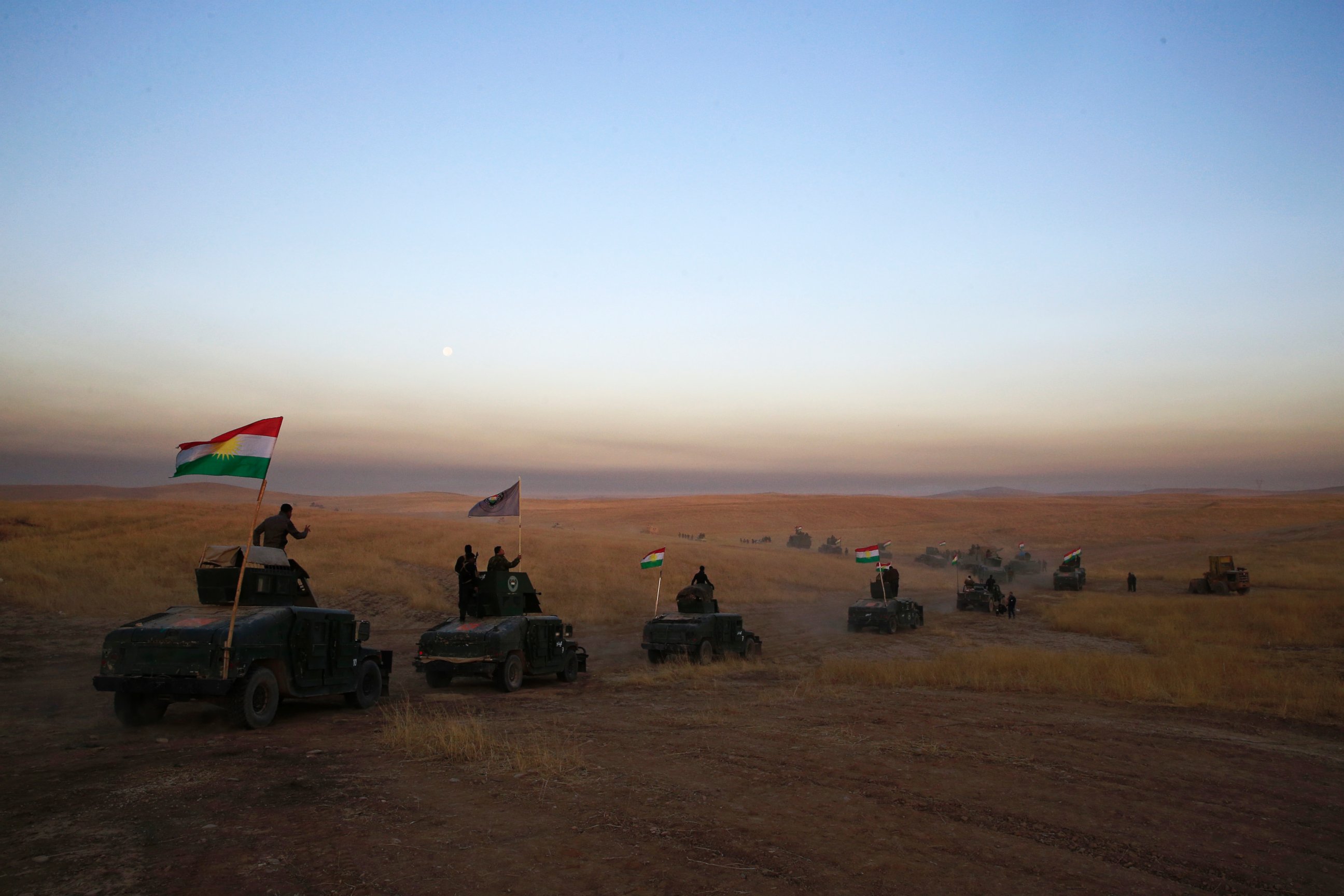How US Forces Are Assisting in the Battle for Mosul
Officials said 10 villages have already been freed.
— -- The Iraqi and Kurdish offensive on Mosul is "ahead of schedule" after the operation's first day, a Pentagon official said today. Only a "small number" of the almost 5,000 American troops in Iraq could find themselves in what a Pentagon spokesman called "a combat environment" as they advise Iraqi special operations forces and Kurdish Peshmerga involved in the offensive to retake Mosul.
"Early indications are that Iraqi forces have met their objectives so far and that they are ahead of schedule for this first day,” said Pentagon spokesman Peter Cook at a briefing. “This is going according to the Iraqi plan, but again, it's early and the enemy gets a vote here. We will see whether ISIL stands and fights."
He continued, "We are confident, however, that the Iraqis have the capabilities to get this job done and we stand ready to support them along with the rest of the coalition. It is in our interest that they succeed, and we will do what we can to help them."
Earlier, Iraqi Kurdistan President Masoud Barzani said Kurdish military forces had regained control of a 200-square-kilometer area outside the city. Officials said 10 villages had been freed from ISIS control and a few more are expected to be rescued by tomorrow morning, depending on how the fighting goes overnight.
As of now, 10 Kurdish casualties have been reported.
Most of the 4,880 American troops currently serving in Iraq are involved in providing logistical support for Iraq's military operations across the country. The actual number of advisers and trainers working with the Iraqi military is in the low hundreds.
"Americans are again playing an adviser role, an enabler role for these Iraqi forces," said Cook. "Most of the American forces in Iraq are not anywhere close to the front line."

"They’re in a position where they’re providing advice in, obviously, a combat environment," Cook added. "So they’re taking normal precautions you would expect for them to take but still be in a combat environment. But again, Americans, even with the CTS and with the Pesh, remain in that support role, that advisory role. They are not in the lead in that fight. And that remains the case."
Ahead of the launch of ground operations, U.S. and coalition aircraft conducted four airstrikes near Mosul, hitting three ISIS units and destroying many tactical resources, such as tunnel entrances, supply caches, mortar systems, artillery, vehicles and a trench tunnel network.
A 30,000-strong combined Iraqi and Kurdish force launched the offensive this morning from the east, moving to surround the city and cut off ISIS's access to outside resources.
At one point, ABC News reporters on the front lines witnessed a lone vehicle speeding across a valley toward their position. The car erupted into flames moments later, but the cause of the blast was not immediately clear. Car bombs are a major tool for ISIS and could play a large role in this fight.

Lt. Gen. Stephen Townsend, the commander of the Combined Joint Task Force operation, said commanders cannot predict how long it will take for the Iraqi Security Forces to defeat ISIS. “But we know they will succeed, just as they did in Baiji, in Ramadi, in Fallujah, and more recently in Qayyarah and Sharqat,” he said.
In a statement Townsend added that the coalition would support the Iraqi forces with "a wide range of coalition capabilities, including air support, artillery, intelligence, advisers and forward air controllers. But to be clear, the thousands of ground combat forces who will liberate Mosul are all Iraqis."




